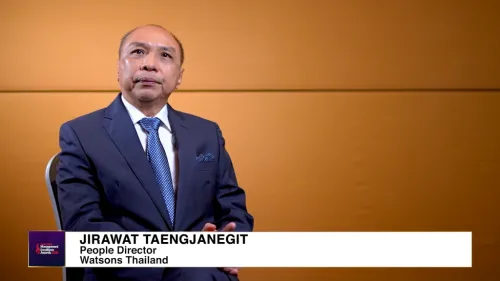Hybrid setup reshapes employment, collaboration amongst Filipino workforce
Flexible setups reduce commuting and increase access to rural talent.
Hybrid work is transforming the employment landscape in the Philippines, with 52% of employees now in hybrid setups. This shift is redefining workplace dynamics, breaking geographical barriers, and encouraging organisations to rethink traditional management strategies, experts said.
"It’s making jobs more accessible to people outside of big cities like Metro Manila. Companies can now hire talent from rural areas, which wasn’t as easy before," said Mercedes Cocjin, Researcher at Kadence International-Philippines.
The reduction in commuting hours also alleviates the stress of Manila’s traffic, improving employee well-being and easing the city's congestion. "Hybrid work helps with that by cutting down on daily commutes for fewer people," Cocjin explained.
Lars Wittig, Country Manager Philippines and Sr. VP APAC North at IWG, highlighted the economic factors driving hybrid work adoption. “More and more people are now finding employment. What is interesting, though, is that as companies employ more people, they tend to downsize their conventional office space. That’s obviously because they are gravitating toward the hybrid working model.”
This shift is also impacting the real estate sector. “Developers and landlords in the Philippines are seeing significantly higher vacancy rates than what they’ve been used to in the past several decades,” Wittig noted.
Eunice Maximo, Partner and Head of Creatives at YCP, emphasised how hybrid work fosters inclusivity and innovation. "The hybrid setup has opened so many doors, especially for Filipinos," she said. "It has provided fair opportunities around the world because of its flexibility."
Maximo highlighted how hybrid work enables collaboration among diverse teams from various locations, bringing fresh perspectives.
Wittig added that hybrid work benefits from meaningful networks, enabling employees to work seamlessly between various locations. “Hybrid obviously means that you have more than one option when you need a professional workspace. It’s pivotal that you subscribe to a provider with a relevant network to where you are, where you travel, and where you live.”
Despite its benefits, hybrid work presents challenges, including uneven internet access across the country, a barrier to remote work adoption. "Reliable connectivity is the backbone of hybrid work, especially for people in rural areas," said Cocjin.
To sustain hybrid work, the government and institutions play a critical role. "They should consider creating policies that protect hybrid workers, like ensuring fair pay and clear rules about working hours," suggested Cocjin. She also emphasised the need for incentives for businesses adopting hybrid setups, particularly those hiring from underserved regions.
Maximo underscored the importance of fostering a results-driven work culture. "Where you are doesn’t define your output," she said. "Let’s champion an output-based work culture, one that values results over location."



















 Advertise
Advertise








Commentary
Ingredients take centre stage for Asian consumers across food and beverage purchases
Human Sparsity Blockchain: A citizen-validated ledger for digital finance supervision
Breaking the myths around turbomachinery downtime in APAC